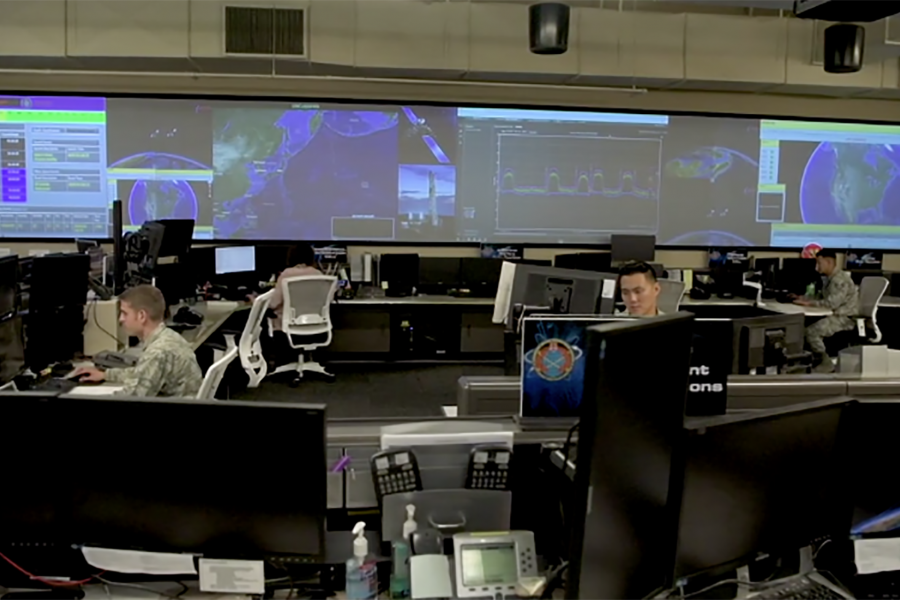VANDENBERG AIR FORCE BASE, Calif.—Handing off responsibility for space traffic management from the Space Force to the Commerce Department is proving slower than expected, a military official told Air Force Magazine.
Mark Daley, the Commerce Department’s operations deputy in the Office of Space Commerce, joined the Combined Space Operations Center here last year. But lower-than-planned funding in 2020 is hindering Commerce’s ability to take over as an orbital traffic cop of sorts, as commercial companies want to exponentially grow the number of satellites in space.
“We would have imagined four or five personnel here by now to be able to go through training and start looking at how would we implement a strategy where the Department of Commerce would actually do that space traffic management mission,” CSpOC boss Col. Scott Brodeur said in a recent interview. “With the lack of funding, they were unable to fill those critical positions here, and so we’ll have to wait to see how the budget shakes out on moving forward.”
Commerce tried to consolidate the Office of Space Commerce with another group, elevate that combined organization within the department, and give it a $10 million budget. But lawmakers pushed back, allotting OSC $2.3 million and keeping it separate from the Commercial Remote Sensing Regulatory Affairs office, according to SpaceNews.
Brodeur believes there are still ways for the transition to make progress over the next several years, even without more money in the short term.
For example, the Department of the Air Force contracts out for management of Space-Track.org, an online space situational awareness and space flight safety resource for satellite owners and operators, academics, and others. But Commerce could pay that contract instead to notch a public victory even if other steps are taking longer than the federal government wants.
“They can politically come out and say, ‘I’m now doing the management of Space-Track.org,’” Brodeur said. “Working through that is my next agenda item with Mr. Daley to see, is that possible, and then we can strike a win and say, ‘Hey, we were actually able to still transition this, given the restraints of the fiscal environment?’”
Other countries could bolster SSA while the U.S. government works on splitting the mission into military interests and commercial interests.
Canada, for instance, has offered to help with the mission if the U.S. can provide the infrastructure to share data with the Canadian Space Operations Center—relieving some of the American burden while contributing more to the alliance, Brodeur said.
He added that Commerce can act as the “storefront” for SSA information, though the Pentagon will continue to track systems on orbit that are relevant for military purposes rather than economic.
